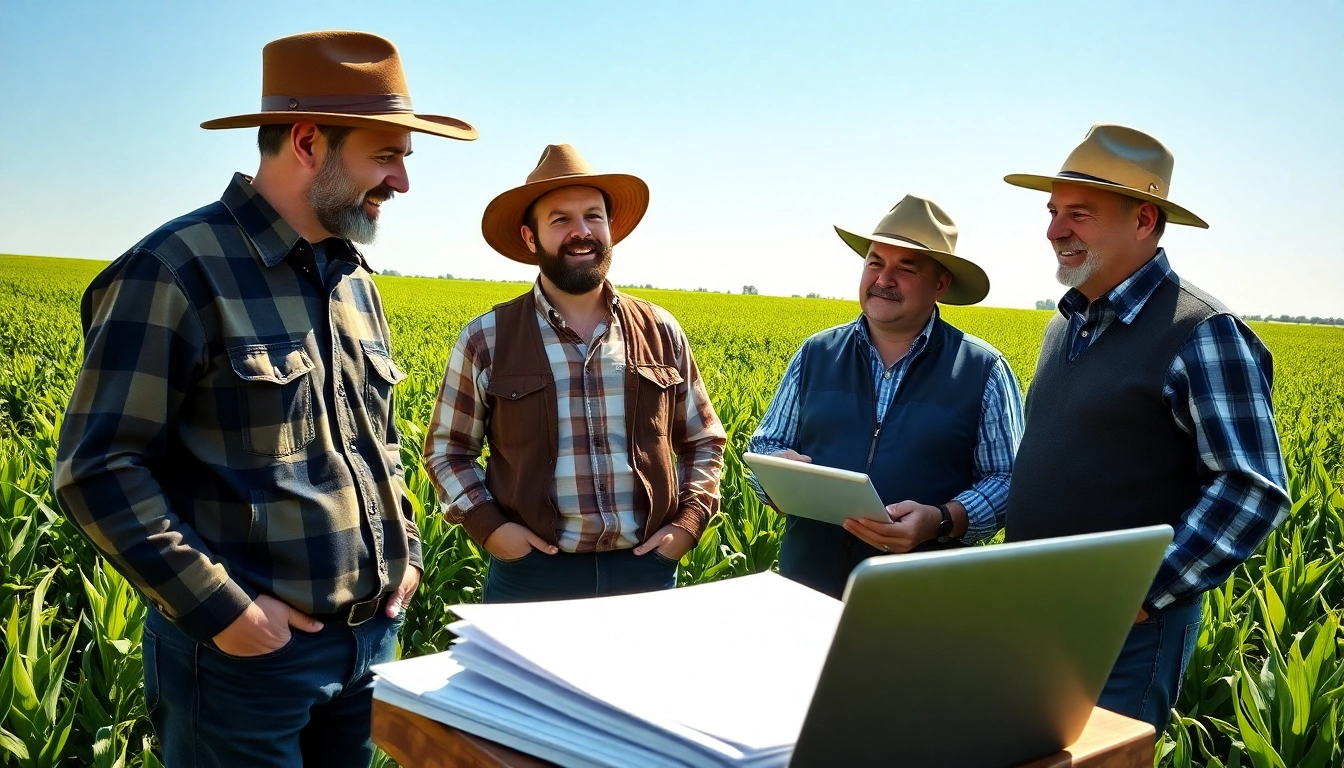Introduction to Agriculture Law
Agriculture law encompasses a vast array of legal issues that affect farmers, ranchers, and the overall agriculture industry. This legal domain is essential in shaping policies, regulations, and practices critical to the sustainability and prosperity of agricultural operations. Understanding agriculture law is vital for stakeholders in the agriculture sector to navigate the complexities of farming in today’s economic and environmental climate.
Importance of Agriculture Law in Modern Farming
Agriculture law plays a pivotal role in modern farming by establishing the legal foundation for land use, environmental protection, labor rights, and food safety. The modern agriculture sector faces numerous challenges such as competition, technological advancements, and evolving public policy, all of which are influenced by legal standards. Farmers who are well-versed in agriculture law can protect their interests, ensure compliance, and enhance their operational efficiency.
Overview of Common Legal Frameworks
The legal frameworks governing agriculture can be intricate, varying from federal to state laws. Important laws include the Agricultural Marketing Act, the Clean Water Act, and the Federal Insecticide, Fungicide, and Rodenticide Act. Each of these laws addresses specific aspects of farming, from the marketing of agricultural products to protection against environmental degradation and pesticide regulation. Familiarity with these laws enables agricultural businesses to operate within legal parameters while optimizing their productivity.
Role of Attorneys in Agriculture Law
Attorneys specializing in agriculture law are crucial for navigating the complexities of legal compliance and representation in disputes. These professionals provide guidance on contracts, compliance with environmental standards, zoning issues, and labor regulations. Their expertise is invaluable in dispute resolution and litigation, ensuring that farmers and agribusinesses are equipped to confront legal challenges effectively.
Key Regulations Affecting Agriculture Law
Environmental Compliance and Sustainable Practices
Environmental regulations significantly impact agricultural operations by emphasizing the need for sustainable practices. Laws surrounding air quality, water protection, and soil conservation require farmers to adopt methods that protect the environment while still allowing for productive farming. Compliance with these regulations is not only a legal obligation but also essential for the long-term viability of agricultural enterprises. Implementing best practices for sustainable agriculture can lead to improved productivity and enhanced marketability of farm products.
Land Use and Zoning Laws
Land use and zoning laws dictate how agricultural land can be utilized, thereby shaping the landscape of farming regions. These regulations can restrict the types of crops that can be grown, the density of farming operations, and the proximity of agricultural activities to residential areas. Understanding local zoning ordinances is crucial for farmers to optimize land use, avoid legal disputes, and maintain compliance with municipal codes.
Health and Safety Regulations for Farmers
The health and safety of agricultural workers are protected under various regulations, including the Occupational Safety and Health Administration (OSHA) standards. These regulations cover essential areas such as equipment safety, exposure to toxic substances, and proper handling of agricultural products. Compliance with health and safety regulations not only protects workers but also enhances productivity and promotes a safer work environment. Training programs and safety protocols should be routinely implemented to ensure compliance and worker protection.
Challenges in Agriculture Law
Legal Disputes in Agricultural Contracts
Contract disputes are prevalent in the agricultural sector, often arising from misunderstandings about production terms, payment schedules, and delivery obligations. These disputes can lead to costly litigation, which stresses the importance of clear contract language and thorough documentation. Engaging legal counsel when drafting or reviewing contracts can help mitigate risks and foster positive relationships between parties involved.
Impacts of Climate Change on Legal Compliance
Climate change poses unique challenges to compliance with agriculture law. Farmers must adapt to shifting weather patterns, which can influence crop yields and require changes in regulatory adherence. This evolving landscape necessitates ongoing education and adaptability from farmers, ensuring they remain compliant with regulations designed to protect natural resources while maintaining operational viability. Legislative changes related to climate initiatives may require farmers to alter practices and adopt innovative solutions to mitigate environmental impacts.
Navigating Global Trade Agreements
Global trade agreements can significantly affect agricultural markets and practices by altering tariffs and trade policies. Farmers need to stay informed about international regulations and agreements that impact their ability to export and import goods. Understanding these agreements allows agricultural producers to better strategize their market operations and to comply with foreign regulatory standards, which can vary widely.
Best Practices for Understanding Agriculture Law
Staying Informed on Legislative Changes
Agriculture law is constantly evolving, requiring stakeholders to stay updated on legislative changes that may affect their farming operations. Regularly consulting legal resources, attending industry workshops, and participating in webinars can provide valuable insights into current trends and legal developments. Establishing a network with industry associations often provides access to resources and expertise beneficial for ongoing compliance.
Working with Legal Advisors
Engaging with legal experts who specialize in agriculture law is essential for effectively navigating the legal landscape. Legal advisors can offer valuable insights into complex regulations, aid in the drafting of contracts, and represent clients in disputes. Building a long-term relationship with a knowledgeable attorney enables farmers to seek timely legal advice when issues arise, ultimately protecting their rights and interests.
Utilizing Resources and Tools for Compliance
There are numerous resources available to help farmers understand and comply with agriculture law. Online databases, legal publications, and compliance checklists can provide essential information. Additionally, utilizing software tools that offer compliance tracking can streamline the management of regulatory requirements. Investing in technology and resources to monitor compliance effectively can greatly reduce legal risks for agricultural operations.
Case Studies and Real-World Applications
Successful Legal Strategies in Farming
Numerous case studies illustrate effective legal strategies employed by farmers to navigate challenges associated with agriculture law. For example, farmers who proactively engage in community outreach regarding land use disputes often find themselves in a better position during negotiations. Such strategies emphasize collaboration, allowing for mutually agreeable outcomes and reducing litigation costs.
Lessons Learned from Legal Disputes
Legal disputes in agriculture often reveal critical lessons about the importance of thorough documentation and clear communication. For instance, cases involving breach of contract often stem from misunderstandings due to vague terms. Farmers are advised to maintain clear records of communications and changes made during negotiations, which can provide a robust defense in legal disputes and foster beneficial business relationships.
Future Trends in Agriculture Law
The future of agriculture law is likely to be shaped by technological advancements, environmental considerations, and changing consumer preferences. Issues such as food labeling, genetically modified organisms (GMOs), and organic farming regulations are at the forefront of legislative discussion. Staying ahead of these trends will be crucial for farmers to ensure compliance and adapt to the changing agricultural landscape effectively.



